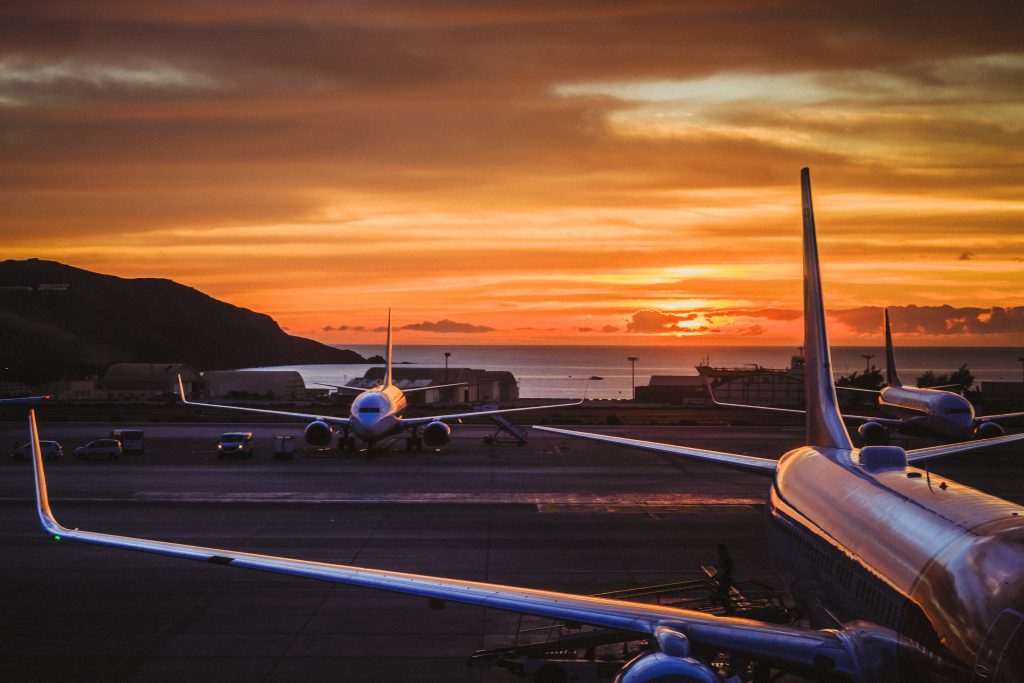London – 06 March 2020 – The aviation industry is facing losses of more than 100 billion dollars as a result of the coronavirus, according to the International Air Transport Association. The IATA recently revised this figure up to between 63 and 113 billion dollars for 2020, depending on how the virus spreads. That’s more than double its original estimate from last month.

This would translate into a loss in worldwide passenger revenue of 11 to 19 percent. To help mitigate the effects, the body has called for the suspension of the ‘use it or lose it’ rules governing the take-off and landing slots for aircraft.
The IATA’s Director, General Alexandre de Juniac, said: “Traffic has collapsed on key Asian routes and that this is rippling throughout the air transport network globally, even between countries without major outbreaks of COVID-19.
“The world is facing a huge challenge to prevent the spread of COVID-19 while enabling the global economy to continue functioning. Airlines are on the front line of that challenge and it’s essential that the regulatory community work with us to ensure airlines are able to operate in the most sustainable manner, both economically and environmentally, to alleviate the worst impacts of the crisis.”
The virus has killed more than 3,000 people and infected 90,000 more as it spreads from China across the world.
Already, it has dragged one airline under. British carrier Flybe has gone into administration, putting around 2,000 jobs at risk. The company’s chief executive Mark Anderson wrote in a letter to staff: “Despite every effort, we now have no alternative – having failed to find a feasible solution to allow us to keep trading.”
The UK government has pledged to help Flybe staff find new jobs, and encourage other airlines to replace the company’s routes. Flybe is advising customers not to travel to the airport unless they have booked with an alternative airline.
The airline could be just the first to crumble, according to Willie Walsh. The boss of British Airways owner IAG says other airlines could be at risk of going under as consumer demand falls. But he warned the crisis should not be an excuse for countries to prop up failing carriers, saying: “I don’t believe it’s appropriate for governments to provide financial support to weak airlines.”
Flybe had its own unique issues. A regional carrier from the UK, it has faced uncertainty from the Brexit process and high passenger duty on the domestic routes it served. It however, was not as exposed to the coronavirus risk as other airlines. It did not fly to China, the centre of the outbreak. Virgin Atlantic, which headed a consortium to rescue Flybe last year, does fly several routes to China. Those are now cancelled, with overall demand for flights halved since the crisis began. On Wednesday, the company announced more emergency measures. Executive pay has been cut, and staff are being encouraged to take unpaid leave.
The story is the same across the industry. The Lufthansa group has suspended flights from Germany, Switzerland and Austria to mainland China. It has also reduced flights to South Korea, Hong Kong and northern Italy. British Airways has cancelled transatlantic services, while U.S. President Donald Trump has been meeting airline executives responsible for much of the country’s domestic market.
Many U.S. carriers, including Delta Airlines and Jet Blue, have announced they will waive ticket change and cancellation fees for passengers caught up in the crisis.
At the A4E aviation summit on March 3rd, airline bosses said the crisis is unlikely to be as bad for the industry as the aftermath of the 2001 terror attack in New York, or in 2009 during the global financial crisis. Air France-KLM CEO, Benjamin Smith, has called for plans to levy green taxes on flight to be delayed to help airlines. He said: “In view of the coronavirus outbreak, we are asking governments to suspend the introduction of new flight taxes. New taxes put extra pressure on us, for example in France and the Netherlands.”
Airline executives say they are hopeful the disruption can be limited to another two or three weeks. Booking trends in Asia suggest an upturn is close by if the number of cases can be contained. But many of those at the aviation conference warned, however, that it’s likely to get a whole lot worse before it gets any better.

IMF/World Bank Spring Meetings to go Virtual
Given the growing health concerns related to the coronavirus, the IMF and World Bank Group have jointly agreed to implement a plan to adapt the 2020 IMF-World Bank Spring Meetings to a virtual format. Delegates will not attend meetings in person, with the possible exception of a small number of delegates participating in official meetings. They will instead conduct their official consultations and related flagship press briefings remotely. This is the first time the IMF and World Bank have taken such emergency measures the September 11, 2001, terrorist attacks in New York and Washington. The meetings are scheduled for April 17-19th. Over 10,000 government officials, delegates, journalists and business leaders had been expected to attend.
IMF World Bank Coronavirus
Today the IMF and World Bank Group announced additional measures taken to curtail the impact of the corona virus on the world’s economy and health. At a news conference in Washington, DC Kristalina Georgieva, IMF Managing Director, emphasized the necessity for immediate coordinated action.
The IMF and World Bank have announced the immediate availability of over $60 billion in resources to member states. For its part the IMF has $10 billion on hand to help low income countries, with an additional $40 billion for others.
“We know the disease is spreading quickly with over one third of our membership affected directly. This is no longer a regional issue. It is a global problem calling for a global response.”
It is too soon to measure the exact economic cost from the outbreak of coronavirus strain COVID-19 but it will negatively impact the world’s economy, said Georgieva.
“Global growth in 2020 will dip below its last year’s levels. But how far it will fall and how long the impact would be is still difficult to predict.”
The IMF is looking at all the data available and hopes to have a more concrete outlook of the ultimate impact when it publishes the next World Economic Outlook report in April.
The World Bank Group aims to help developing countries which are particularly vulnerable to the corona virus outbreak with additional packages and measures, said David Malpass, President of the World Bank Group.
“It’s a $12 billion package of which $ 6 billion dollars is IBRD and IDA, and that enables and allows special protection for poor countries. And then there’s also $6 billion Dollar from the International Finance Corporation. That’s critical because it’s private sector financing, it’s fast acting and it takes the form of trade finance and working capital finance, which are some of the most needed services that can be provided during this crisis.”
Malpass emphasized the need for short-term financing during the crisis. “t’s important that the fiscal and monetary stimulus not shift resources away from working capital.”
Although Africa has been largely spared by the spread of COVID-19 so far, the IMF is prepared to help the most vulnerable countries in the region, Georgieva assured.
“We do have up to $10 billion dollars available for low income countries to tap in with zero interest rates. And obviously we would prioritize countries, especially countries in Africa, that have already been faced with difficulties.”
Georgieva stressed that the global outbreak of COVID-19 warrants immediate health and economic responses to mitigate the impact on people and the world economy.
“What is hugely important today is to focus on building a bridge between where we are and that time when we would see a recovery to make sure that the impact, meanwhile, is softened first and foremost on people and also, of course, on businesses and the economy.”
